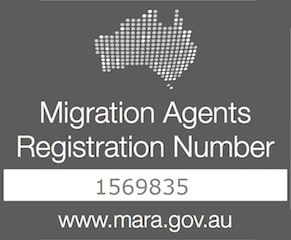DIBP has announced that from 18 April 2015, the minimum English language test scores for the Skilled – Recognised Graduate (subclass 476) and Temporary Graduate (subclass 485) visas will change.
This change means the ‘competent English’ requirement no longer applies to subclasses 476 and 485.
For applications lodged on or after 18 April for the sc485 and sc476, applicants must provide evidence of having achieved one of the following in a test taken in the three years immediately prior to lodging your visa application:
- an overall score of at least 6, with nothing below 5 in each of the four test components (speaking, reading, listening and writing) in an International English Language Testing System (IELTS) test
- a score of at least ‘B’ in each of the four test components (speaking, reading, listening and writing) of an Occupational English Test (OET)
- a total score of at least 64, with nothing below 4 for listening, 4 for reading, 14 for writing and 14 for speaking, in a Test of English as a Foreign Language internet-based test (TOEFL iBT)
- an overall score of at least 50 with nothing below 36 in each of the four test components (listening, reading, writing and speaking) in a Pearson Test of English Academic
- an overall score of at least 169 with nothing below 154 in each of the four test components (listening, reading, writing and speaking) in a Cambridge English: Advanced (CAE) test taken on or after 1 January 2015.
Only minimum English test scores will change. Applicants will still meet the English requirement if they hold a valid passport issued by the United Kingdom, the United States of America, Canada, New Zealand or the Republic of Ireland.
The Department of Immigration and Border Protection in Australia is warning that there are a number of scams which target people looking for visas and jobs.
‘We have been made aware of a wave of scam phone calls currently taking place. The people making these phone calls are impersonating officers from the department or other government organisations,’ a spokesman explained.
‘The caller will usually insist that a fine be paid immediately as a penalty for an alleged error committed by the intended victim. We can confirm that we will not ask for payment of fines or penalties by telephone,’ he added.
A common approach has seen visa holders receiving a phone call from an individual posing as an immigration official. The caller has the visa holder’s passport and date of birth, and claims that the date of birth recorded is incorrect and needs to be updated for a cost. The caller claims that the visa holder will be deported if they don’t make this payment.
‘Be aware this is a scam. If you receive a call of this nature, we advise that you hang up immediately and report the call to police in your state or territory, and to us on the Immigration Dob-in Service,’ the spokesman added.
The DIBP is also warning about scams that use email addresses ending in .pn’ claiming to be from the department. The scammer contacts a victim through a fake email address and claims to be from the department or another Australian Government agency.
The email address used by the scammer is not a genuine departmental email address and ends in .pn. For example, immi@govt.au.pn or australia@immigrationapproval.com.au.pn.
‘Victims can receive an email unsolicited, after they register their details on a job seeking website, or after responding to a non-genuine employment ad. The person targeted will be asked to provide personal documents to the scammer, and will then be asked to make a payment through Western Union money transfer,’ the spokesman pointed out.
The victim might be told they have been selected in a ‘resettlement programme’ through an ‘electronic ballot’. These scam emails have often been signed by a ‘Hon. Thomas Smith’.
The victim might be contacted by the scammer pretending to be from a company. The victim is then taken through a fake recruitment
process, and told to contact the department through a non-genuine email address ending in .pn.
‘We will never send genuine emails from an email address that ends in .pn. We will not ask you to make a payment directly to the department through Western Union. We do not offer a resettlement programme through unsolicited emails or an electronic ballot. If you have received an email that matches this scam we strongly recommend not responding,’ the spokesman concluded.

